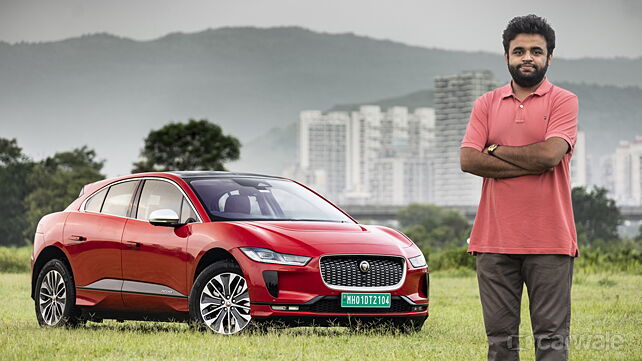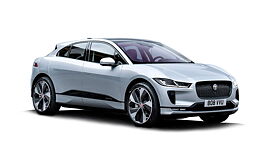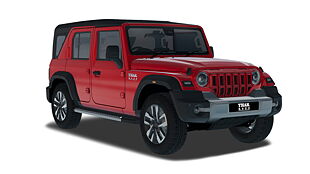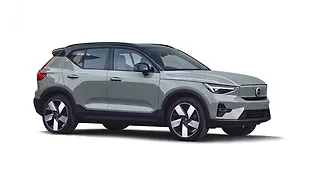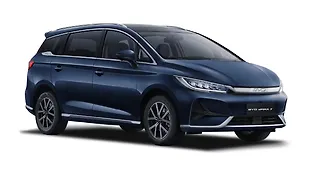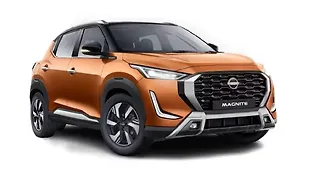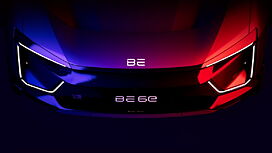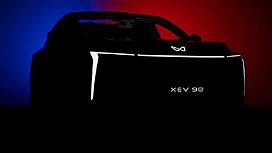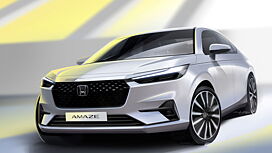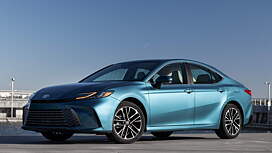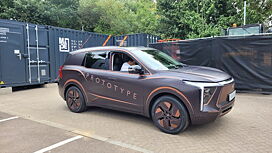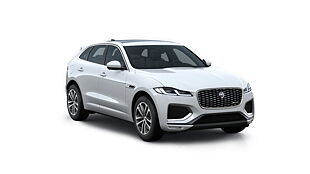Why would I buy it?
8 / 10
- Explosive performance
- Usable range
Why would I avoid it?
- Fussy touchscreen displays
- A little expensive
Verdict

Electric vehicles are unquestionably in vogue at the moment. It is worth remembering how little they were discussed and valued not too long ago and now, EVs have become the ultimate focus of carmakers across the board as every brand scrambles to strike gold in this new space.
Luxury carmakers, in fact, have been in the forefront, spearheading the EV revolution. We have driven and tested the Mercedes EQC, Audi’s e-tron and now, finally the Jaguar I-Pace. And it’s the Jag which seems the most outlandish of the lot, both on paper and in reality. Unlike the EQC and the e-tron which look decidedly conservative and ‘normal’, there is nothing else on the road at this point that looks like the I-Pace.

Things like the short, low bonnet, coupe-like silhouette and a curved rear screen resonant with Jaguar’s C-X75 super car. What’s even more impressive is that this is essentially a cab-forward design that Jaguar designers have managed to contrast well with those muscular haunches and the squared-off rear. The I-Pace, then, is a striking looking thing but does it move as good as it looks? We have driven it extensively to answer just that.

Engine and Performance
9 / 10

With 400bhp and 696Nm of torque, it goes without saying much that the I-Pace is fast. It’s got two electric motors and both are placed at each axle. The battery, meanwhile, is placed centrally between the two axles, and as low down as possible with a seal between the housing and the under floor. This location enables 50:50 weight distribution and a low centre of gravity.
Now, one thing with high power EVs is guaranteed and that is blistering straight line performance and the urgency to get up to speed with all that instantaneous torque. Even the Audi e-tron we tested recently can make it feel like your organs are being pushed back but a full throttle sprint in the I-Pace is truly astonishing. Push the throttle pedal to the floor and you are briskly thrown into the back of your seat with the thrust of a Saturn Five rocket.

In our performance tests, we clocked the I-Pace at 4.36 seconds to 100kmph which is astonishing. Better still, it would do 20-80kmph in 2.60 seconds and 40-100kmph in just 2.97 seconds so it’s best you hold onto that steering wheel because at times this Jaguar feels violently quick.

Like in the e-tron, here you can select either high or low levels of regenerative braking to maximise efficiency and improve your range. With the high regenerative mode selected, the I-Pace will decelerate and come to a stop as soon as you get off the accelerator. In heavy traffic, then, one can slow the vehicle just by easing off the accelerator pedal with no need to use the brakes to hold the car stationary, even on an incline. As for charging, Jaguar claims a 0-80 per cent battery charge from empty in 40 minutes using DC rapid charging (100kW).
Alternatively, home charging with an AC wall box (7kW) will take the I-Pace from empty to 80 per cent in little over ten hours, making it ideal for overnight charging. What’s equally important is range on a full charge and the I-Pace has a WLTP range of 480km. During our time with the car we put it through a number of scenarios including city/highway driving, performance runs and the sporadic traffic light sprints and we managed to drive it for 300km at which point there was still 30 per cent charge left in the batteries.

Interior Space and Comfort
7.7 / 10

The interior matches the exterior for its striking looks and the way it’s laid out. Unlike the e-tron and the EQC which share most of their interior bits with their ICE counterparts, everything in here looks and feels bespoke and special, from those pop out door handles and the multi-layered dash, to the thickly bolstered seats that you sink into. When it came out, the I-Pace was the first Jaguar to incorporate the brand’s intuitive Touch Pro Duo infotainment system, which uses a combination of touchscreens, capacitive sensors and tactile physical controls to operate key functions.

You get two touchscreens, one for the infotainment system plus the car settings and the other one for the climate control and the seats. In reality, then, almost everything is touch based and while the tech makes the cabin feel more space-age, it’s not exactly user friendly. For instance, a task as simple as changing the blower speed involves multiple steps as you have to go through the secondary touch display and then the physical rotary knob to adjust it.

Even though it’s sold as mid-size crossover, the I-Pace’s cab forward design and EV packaging means it’s refreshingly spacious, especially at the back. The whole thing is quite wide meaning shoulder room was never going to be an issue. The headroom is also more than adequate and so is the leg space – I had plenty of knee room with the seat set to my driving position. The full-size panoramic roof is a fixed unit; however, it spans across the entire seating area and floods the cabin with light, adding to the sense of airiness. Jaguar says both the glass roof and windows absorb infrared light, removing the need for blinds.

Ride and Handling
7.5 / 10

What’s it like to drive? Incredible. Brilliant. So much fun. That last bit is purely down to the cartoonish-level of acceleration that you get to experience every time you mash the throttle but even otherwise, the I-Pace is quite different from its peers. It’s actually rewarding to drive and a lot of fun to chuck around. The optional air suspension on this thing helps deliver a sublime ride quality over bad roads. In its most comfortable setting, the I-Pace rides just as well as any mid-size luxury sedan, if not better. It’s that feeling of wafting ride comfort that you get in cars with air suspension that makes the I-Pace completely livable even if there might be some range anxiety.
The fact that it’s got torque vectoring and a battery pack that’s placed as low down as possible should give you a clue that Jaguar has genuinely made an effort to make the I-Pace stick. And it shows. The grip from the all-wheel drive system is superb and in the sportiest of suspension setting, body roll is also well contained. Irrespective of its EV credentials, the I-Pace is a rewarding car to drive fast and even though it cannot fully hide its 2.2-tonne weight under that outlandish bodywork, the handling is confidence-inspiring and the thing doesn’t feel cumbersome at all.

Features and Equipment
7 / 10

The top-spec HSE trim that you see here is quite loaded. You get Matrix LED headlights, electrically adjustable seats with cooling function, a heads-up display, premium Meridian sound system, electric tailgate, a full panoramic fixed glass roof, a fully digital instrument cluster and dual touch display for all the car functions. Sadly, the air suspension which works brilliantly across varied road surfaces is an optional extra even on the HSE trim.

Conclusion
8 / 10

It’s no news that electric vehicles are coming our way, and in a big way. The more concerning question is when – when will we reach that stage wherein buyers would be spoiled for choice when it comes to adopting the EV life? Until then, the fact that today one gets to choose between different luxury EVs is pretty impressive and Jaguar deserves credit for bringing their halo EV to India. Better still, they deserve even more credit for coming up with an electric vehicle that looks the part, is fun to drive, fairly luxurious and most important of all, suitable for daily use with a long enough range and sorted dynamics.
Pictures by Kapil Angane

